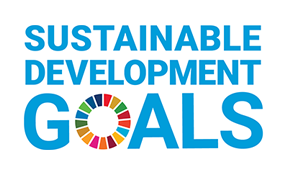At a GlanceReport 12—Protecting Canada’s Food System
Why we did this audit
- Canadians and parliamentarians need assurance that emergency food programs achieved their intended outcomes by reaching Canadians facing food insecurity and by supporting the resilience of the food processing sector. Moreover, the findings of this audit may help government departments and agencies better prepare for future crises.
- It is impossible to know when the next crisis affecting Canada’s food system will emerge or what form it will take. An effective response to a rapidly unfolding crisis depends on collaboration, coordination, and integration by all partners to facilitate coherent action.
- Although the COVID‑19 pandemic was unprecedented in recent history, a crisis of this scale could happen again. Knowing the effectiveness of Canada’s response, as well as which of its aspects worked or could be improved, is essential to emergency preparedness for the critical food sector.
Our findings
- The government had not developed a national emergency preparedness and response plan that considered a crisis affecting the entire food system and Canadians’ food security.
- Responsible departments and agencies drew on existing programs to expedite the creation of the new emergency food programs.
- Some inconsistencies in program design led to unfair treatment of applicants and recipients across regions.
- Responsible departments and agencies could not always measure gender and diversity outcomes, and the programs’ contributions to sustainable development were not always clear.
Key facts and figures
- According to a May 2020 study by Statistics Canada, food insecurity among Canadians rose during the COVID‑19 pandemic to 14.6%.
- The federal government expects departments and agencies, when developing their programs and policies, to take into account the social, economic, and environmental dimensions of sustainable development.
- The Treasury Board’s directive under the Policy on Transfer Payments requires government departments and agencies to ensure that transfer payment programs are delivered fairly to all involved, including applicants and recipients.
Highlights of our recommendations
- Agriculture and Agri-Food Canada should work with its federal, provincial, and territorial partners, as well as its stakeholders, to complete a national emergency preparedness and response plan for a crisis affecting Canada’s entire food system, taking into consideration the food security of Canadians.
- Agriculture and Agri-Food Canada should ensure that its future initiatives have performance measurements that allow it to obtain sufficient, consistent, and relevant data to assess the achievement of outcomes.



In September 2015, the 193 member states of the General Assembly of the United Nations, including Canada, unanimously adopted the United Nations’ 2030 Agenda for Sustainable Development. The 2030 Agenda contains 17 aspirational goals for social, environmental, and economic sustainable development worldwide. For example, the goal of zero hunger (Goal 2) aims to “end hunger, achieve food security and improved nutrition and promote sustainable agriculture,” while the goal of gender equality (Goal 5) seeks to “achieve gender equality and empower all women and girls.”
The 2019–2022 Federal Sustainable Development Strategy sets out the government’s environmental sustainability priorities, establishes goals and targets, and identifies actions to achieve them. A milestone completed under this strategy was the launch of the Food Policy for Canada to support the achievement of interdependent social, environmental, and economic outcomes, including improved access to safe and healthy food for all Canadians.
Visit our Sustainable Development page to learn more about sustainable development and the Office of the Auditor General of CanadaOAG.
Related information
| Entities | |
|---|---|
| Completion Date | 23 September 2021 |
| Tabling Date | 9 December 2021 |
| Related Audits |
|